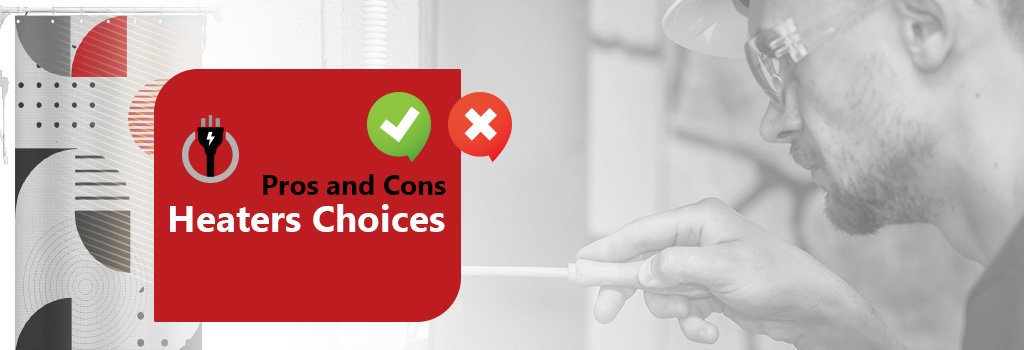A Comprehensive Analysis to Guide Your Home Heater Choices

Electric Heaters (Convection):
Heats air through electrical resistance.
- Advantages: Suitable for medium to larger rooms, even heat distribution.
- Disadvantages: Takes time to warm up.
- Energy Efficiency: Provides even heat distribution with moderate efficiency.
Electric Oil Heater:
Heats through electrically heated oil.
- Advantages: Retains heat well after use.
- Disadvantages: Takes time to heat up, heavier.
- Energy Efficiency: Relatively energy-efficient, especially for maintaining warmth.
Fan Heater:
Generates warmth through an electric heating element and a fan.
- Advantages: Rapid heating, portable and compact.
- Disadvantages: Limited coverage for larger spaces, potential noise.
- Energy Efficiency: Quick heating, potentially less efficient for larger areas.

Heating Shower Curtain
Utilizes electric heating wires for rapid warming.
- Advantages: Uniform and rapid temperature increase without airflow sensation or noise.
- Disadvantages: Specific to bathroom use, requires support rod for hanging.
- Energy Efficiency: Utilizes heating wires with 900-1350W, suitable for smaller spaces.
Infrared Heater
Utilizes infrared radiation for spot heating.
- Advantages: Provides instant, focused heat.
- Disadvantages: Limited coverage for larger areas.
- Energy Efficiency: High efficiency for spot heating.
Heated Towel Rails
Operates using electricity to warm towels and space.
- Advantages: Dual-purpose heating, energy-efficient for specific applications.
- Disadvantages: Limited capacity for larger rooms, higher upfront cost.
- Energy Efficiency: Efficient for small spaces due to dual functionality.

When selecting a heater with a focus on energy efficiency, consider both the advantages and disadvantages to ensure it meets your specific needs and preferences. Look for features like programmable thermostats, timers, and adjustable heat settings to optimize energy savings based on your usage patterns.


